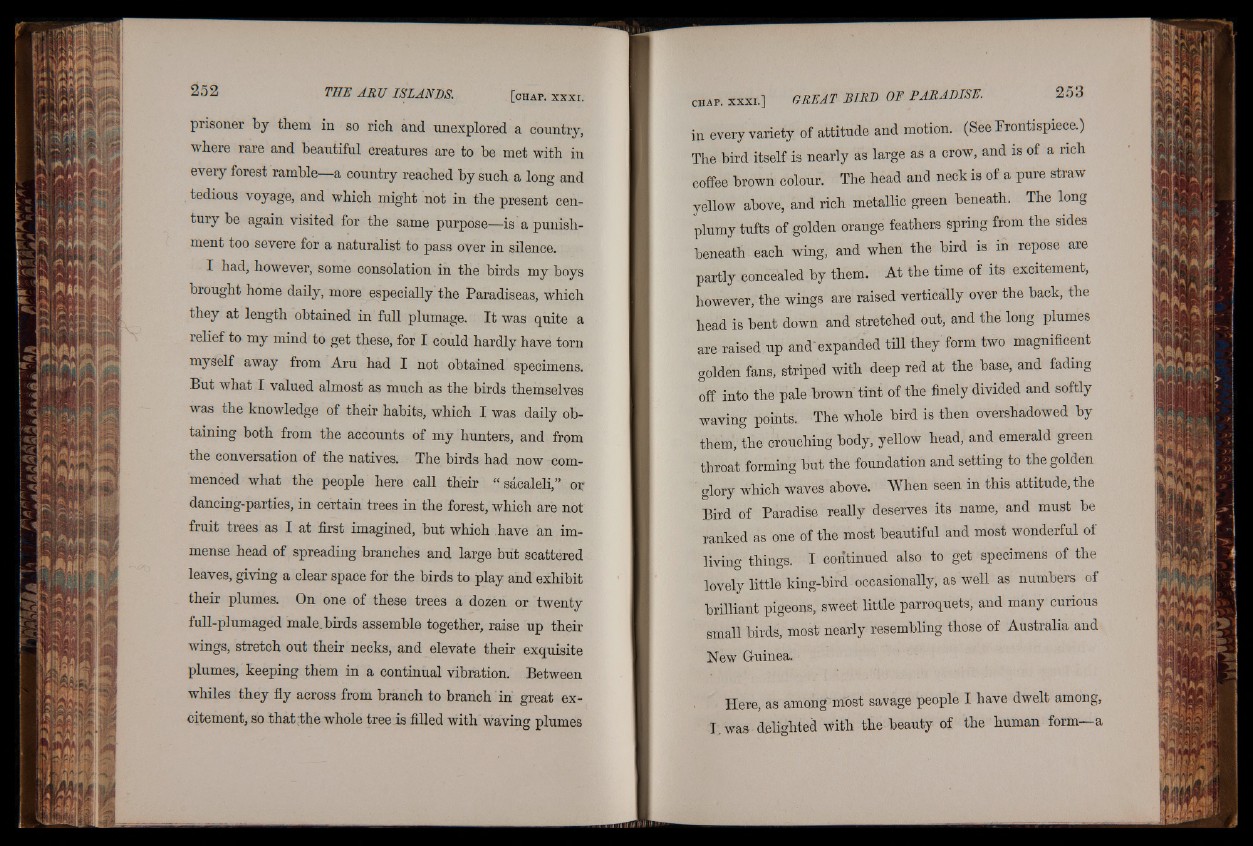
prisoner by them in so rich and unexplored a country,
where rare and beautiful creatures are to be met with in
every forest ramble—a country reached by such a long and
tedious voyage, and which might not in the present century
be again visited for the same purpose—is a punishment
too severe for a naturalist to pass over in silence.
I had, however, some consolation in the birds my boys
brought home daily, more especially the Paradiseas, which
they at length obtained in full plumage. I t was quite a
relief to my mind to get these, for I could hardly have torn
myself away from Aru had I not obtained specimens.
But what I valued almost as much as the birds themselves
was the knowledge of their habits, which I was daily obtaining
both from the accounts of my hunters, and from
the conversation of the natives. The birds had now commenced
what the people here call their “ sacaleli,” or
dancing-parties, in certain trees in the forest, which are not
fruit trees as I at first imagined, but which have an immense
bead of spreading branches and large but scattered
leaves, giving a clear space for the birds to play and exhibit
their plumes. On one of these trees a dozen or twenty
full-plumaged male, birds assemble together, raise up their
wings, stretch out their necks, and elevate their exquisite
plumes, keeping them in a continual vibration. Between
whiles they fly across from branch to branch in great excitement,
so that -the whole tree is filled with waving plumes
in every variety of attitude and motion. (See Frontispiece.)
The bird itself is nearly as large as a crow, and is of a rich
coffee brown colour. The head and neck is of a pure straw
yellow above, and rich metallic green beneath. The long
plumy tufts of golden orange feathers spring from the sides
beneath each wing, and when the bird is in repose are
partly concealed by them. At the time of its excitement,
however,-the wings are raised vertically over the back, the
head is bent down and stretched out, and the long plumes
are raised up and'expanded till they form two magnificent
golden fans, striped with deep red at the base, and fading
off into the pale brown tint of the finely divided and softly
waving points. The whole bird is then overshadowed by
them, the crouching body, yellow head, and emerald green
throat forming but the foundation and setting to the golden
glory which waves above. When seen in this attitude, the
Bird of Paradise really deserves its name, and must be
ranked as one of the most beautiful and most wonderful of
living things. I continued also to get specimens of the
lovely little king-bird occasionally, as well as numbers of
brilliant pigeons, sweet little parroquets, and many curious
small birds, most nearly resembling those of Australia and
Hew Guinea.
Here, as among most savage people I have dwelt among,
I, was delighted with the beauty of the human form—a